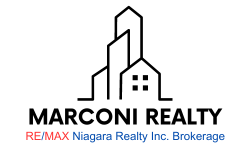As a buyer, it’s important to get clear on your expectations when it comes to successfully acquiring your property. Asking yourself important questions can help you to set reasonable goals. Here’s a sample list of questions you can answer to get you started:
Why are you interested in purchasing a property? (e.g., relocation, marriage)
The timeline for purchasing a property is?
Do you currently own a property?
Do you need to sell your existing property before purchasing a new property?
How will you finance the purchase?
How much money have you set aside for the down payment and the closing cost?
Have you been pre-qualified for financing?
Are you open to looking at various types of properties (e.g., house or a condo)?
How many bedrooms do you prefer? Do you want an eat-in kitchen? A main floor family room? A dining room? A garage?
Do you have requirements (e.g., no stairs, ramps, or accessibility requirements)?
Is there a specific location you prefer?
Do you need proximity to schools, public transportation, or any other public amenity?
Material Facts Checklist:
A material fact is, “a fact that would affect a reasonable person’s decision to acquire or dispose of ” an interest in real estate. Below are some examples of common material facts to be considered for a buyer:
Structural conditions:
* age * roof leaks * mould
* foundation damage * insects
* electrical deficiencies * water seepage
Outdated hazardous materials:
* asbestos insulation * knob-&-tube wiring
* lead/Kitec plumbing
* underground storage tanks
Discrepancies in building and/or dwelling measurements cited in listings
Previous use of a property:
* grow-op (or other illicit activity)
Zoning:
* bylaws * land use * fence height
Private limitations:
* easements * restrictive covenants
Government limitations:
* HST * property taxes * expropriation plans
Alterations:
* renovations completed without permits
Nearby businesses that may impact quality of life (e.g., loud noise from an airport)
Additional Expenses to Consider:
Third-party expenses can be part of the home buying experience such as the costs of obtaining services from a property inspector, appraiser and a surveyor. Other expenses that a buyer may have to incur when buying a home include land transfer tax, remuneration, moving expenses and even adjustments made on closing.
See Below PDF – Canada Mortgage and Housing Corporation (CMHC) Homebuying Step by Step Guide
Comments are closed

